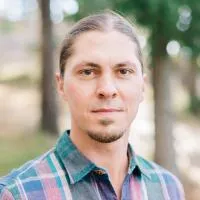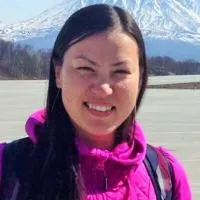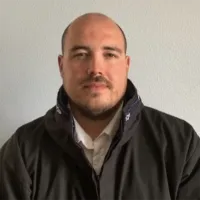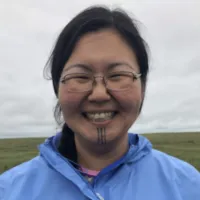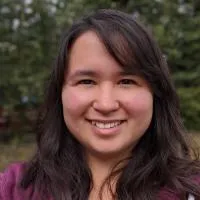Advisory Committee
Advisory Committee
Clint Carroll
UNIVERSITY OF COLORADO BOULDER
Clint Carroll is an associate professor of Ethnic Studies at the University of Colorado Boulder. A citizen of the Cherokee Nation, he works closely with Cherokee people in Oklahoma on issues of land conservation and the perpetuation of land-based knowledge and ways of life. Clint’s current projects include co-directing (with a group of elders and wisdom-keepers) a land education program for five Cherokee students and serving as principal investigator on a related study about Cherokee plant gathering access in rural northeastern Oklahoma. His book, Roots of Our Renewal: Ethnobotany and Cherokee Environmental Governance (2015, University of Minnesota Press), explores how tribal natural-resource managers navigate the material and structural conditions of settler colonialism, as well as how recent efforts in cultural revitalization are informing such practices through traditional forms of decision making and local environmental knowledge.
Tatiana Degai
UNIVERSITY OF VICTORIA, BRITISH COLUMBIA
Born on Kamchatka land, Russia, Tatiana Degai was raised on the traditional grounds with the Itelmen people. Her life, work, and research are inspired by a rich heritage, worldviews, and wisdom of her people and Indigenous communities, whose traditional lands she had the honor to visit and live on. Her formal education is in Anthropology from the University of Alaska, Fairbanks, and a doctorate of American Indian Studies at University of Arizona. She is currently an assistant professor at the department of Anthropology, University of Victoria, British Columbia, and an affiliate assistant professor of the Arctic Indigenous Studies at the Arctic, Remote, and Cold Territories, Interdisciplinary Center (ARCTICenter), at the University of Northern Iowa. Her research centers around Indigenous visions to sustainability, Indigenous languages, and Indigenous arts. She maintains a strong connection with the Council of Itelmens of Kamchatka “Tkhsanom,” working on language and culture revitalization, and community well-being.
Kaare Sikuaq Erickson
IKAAĠUN ENGAGEMENT
Kaare Sikuaq Erickson leads Ikaaġun Engagement, which provides education and orientation services to Arctic scientists and rural educators. Ikaaġun is based in Unalakleet and Anchorage, Alaska. Sikuaq was raised on the Bering Sea coast and has family scattered across northern Alaska from Unalakleet to Shishmaref to Utqiaġvik. Sikuaq was taught to provide for his communities through subsistence and leadership. His upbringing taught him to be aware of problems facing Arctic communities and to find creative, realistic, and effective ways to alleviate or solve these issues. Sikuaq spent nearly two decades immersed in cultural studies and has most recently spent several years developing and implementing creative, effective, and efficient outreach, engagement and K-12 education programs for high profile Arctic research projects. Sikuaq's unique upbringing and specialized training allows him to successfully fulfill his role as cultural broker connecting Arctic communities and Arctic research entities.
Mellisa Maktuayaq Johnson
ARCTIC-YUKON-KUSKOKWIM TRIBAL CONSORTIUM (AYK TC)
Mellisa Maktuayaq Johnson is Iñupiaq born and raised from Nome, Alaska. As a tribal member of Nome Eskimo Community, Mellisa has a strong passion for protecting, respecting, advocating and maintaining traditional Indigenous ways of life. Inspired by Elders, community members, and her family, Mellisa works to share with others the importance of maintaining culture and heritage in language revitalization efforts, climate advocacy, and incorporation of Indigenous knowledge into different systems. She previously worked as Executive Director with Bering Sea Elders Group (2018 to 2022), has sixteen years experience with tribal health, and currently works with the Arctic-Yukon-Kuskokwim Tribal Consortium (AYK TC) as a Government Affairs and Policy Director. She holds a Bachelor's degree in Health Services Administration with a minor in Human Services from Alaska Pacific University and is also a US Air Force veteran.
Margaret Anamaq H.C. Rudolf
INTERNATIONAL ARCTIC RESEARCH CENTER, UNIVERSITY OF ALASKA FAIRBANKS
Margaret Anamaq H.C. Rudolf is a postdoctoral researcher with the International Arctic Research Center at the University of Alaska Fairbanks. She is Iñupiaq with her family originally coming from King Island, but she grew up in Anchorage and Fairbanks, Alaska. Grounded in her Iñupiaq values and the practicality of her engineering background, her work centers around making research actionable and useful for Alaska Native communities on the frontlines of climate change. Her research interests are in co-production of knowledge, research evaluative metrics, funding structures, and research prioritization all in the context of Arctic research and observing.
